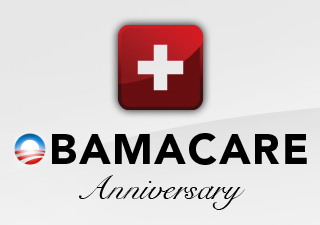Commentary

Obamacare: We Can’t Keep the Change
This commentary first appeared in the Harrisburg Patriot News.
In the days before the new health care law passed Congress last year, then-House Speaker Nancy Pelosi famously said that we would “have to pass the bill to find out what is in it.”
Well, it has been a year since the Patient Protection and Affordable Care Act passed, and we are now learning what was in it—much to the detriment of Pennsylvania taxpayers, businesses, doctors and patients.
Here’s some of what we now know: You probably will not be able to keep your current insurance plan. Although the president constantly reassured us that Americans would not be forced to change their current insurance plans, that increasingly appears untrue.
For example, 877,000 Pennsylvania seniors participate in the Medicare Advantage program. The Congressional Budget Office predicts that PPACA “could lead many plans to limit the benefits they offer, raise their premiums or withdraw from the program.” And, the Medicare program’s chief actuary has testified that more than a quarter of seniors could be forced out of the program.
If you get your insurance at work, you will almost certainly have to change plans. The administration now admits that more than two-thirds of companies could be forced to change the coverage they offer their workers. For small businesses, the total could reach 80 percent. The new plans will have to offer additional benefits and meet new federal requirements, likely making them more expensive.
Already, thousands of Pennsylvania workers with Flexible Spending Accounts have seen how much can be contributed to the accounts cut in half, and FSA funds can no longer be used to purchase over-the-counter medications.
Workers with Health Savings Accounts remain in limbo, awaiting rules from the federal Department of Health and Human Services to determine if their plans will survive. Moreover, the law’s individual mandate continues to pose a threat to Pennsylvanians’ ability to keep their current coverage.
That mandate not only requires everyone to buy insurance, it requires insurance to meet strict government requirements, offering the benefits that the government thinks you should have, not necessarily the benefits you want or need.
The Congressional Budget Office officially “scored” the health care bill as costing $950 billion. However, those numbers do not reveal the new law’s true cost. For example, CBO’s estimates do not include roughly $115 billion in implementation costs such as the cost of hiring new IRS agents to enforce the individual mandate.
The arcane budget rules of Medicare, Social Security and the law’s new long-term care program also allow the government to double count savings while ignoring future costs outside the budget window.
Finally, the law front-ends taxes while deferring costs, providing a misleading 10-year budget outlook. True accounting suggests that the law will cost as much as $2.7 trillion over 10 years of full operation and add $823 billion to the federal deficit.
Any Pennsylvanian opening their health insurance bills recently can see that their premiums are not going down. BlueCross of Northern Pennsylvania was just granted permission to increase its rates from 9 percent to 15 percent. Capital BlueCross and Geisinger Health are predicting steady increases during the next decade. Highmark has increased its rates for small businesses by an astonishing 50 percent.
While not all of the increase can be traced to Obamacare, there is no doubt that the law has done nothing to slow rising health care costs. And the law does add its own costs. Aetna cites provisions of Obamacare as a significant reason for its recent 10 percent hike in premiums for its Individual Advantage Plan. Your taxes are going up. The PPACA imposes more than $569 billion in new or increased federal taxes during the next 10 years.
And, it’s not just federal taxes that are rising. PPACA will add more than 454,000 people to Pennsylvania’s Medicaid rolls, driving up the cost of the state’s program by more than $840 million by 2019. That means state taxes will go up or other state services will be cut. Now that we’ve had a year to see what is in the bill, Pennsylvanians should say “no thank you.”
# # #
Michael Tanner is a senior fellow at the Cato Institute in Washington, D.C. Nathan A. Benefield is Director of Policy Research with the Commonwealth Foundation.